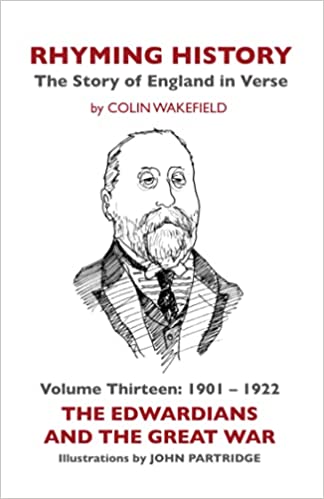Volume Thirteen – 1901 – 1922
The Edwardians and the Great War
KING EDWARD: A LIFE OF PLEASURE
THE BOER WAR
A THEATRICAL LEGEND
TOURING THEATRE COMPANIES
THE STRENGTH OF CAMPBELL-BANNERMAN
KEIR HARDIE
MOTORING
KENNETH GRAHAME
EDWARD ELGAR
THE BATTLE OF THE SOMME
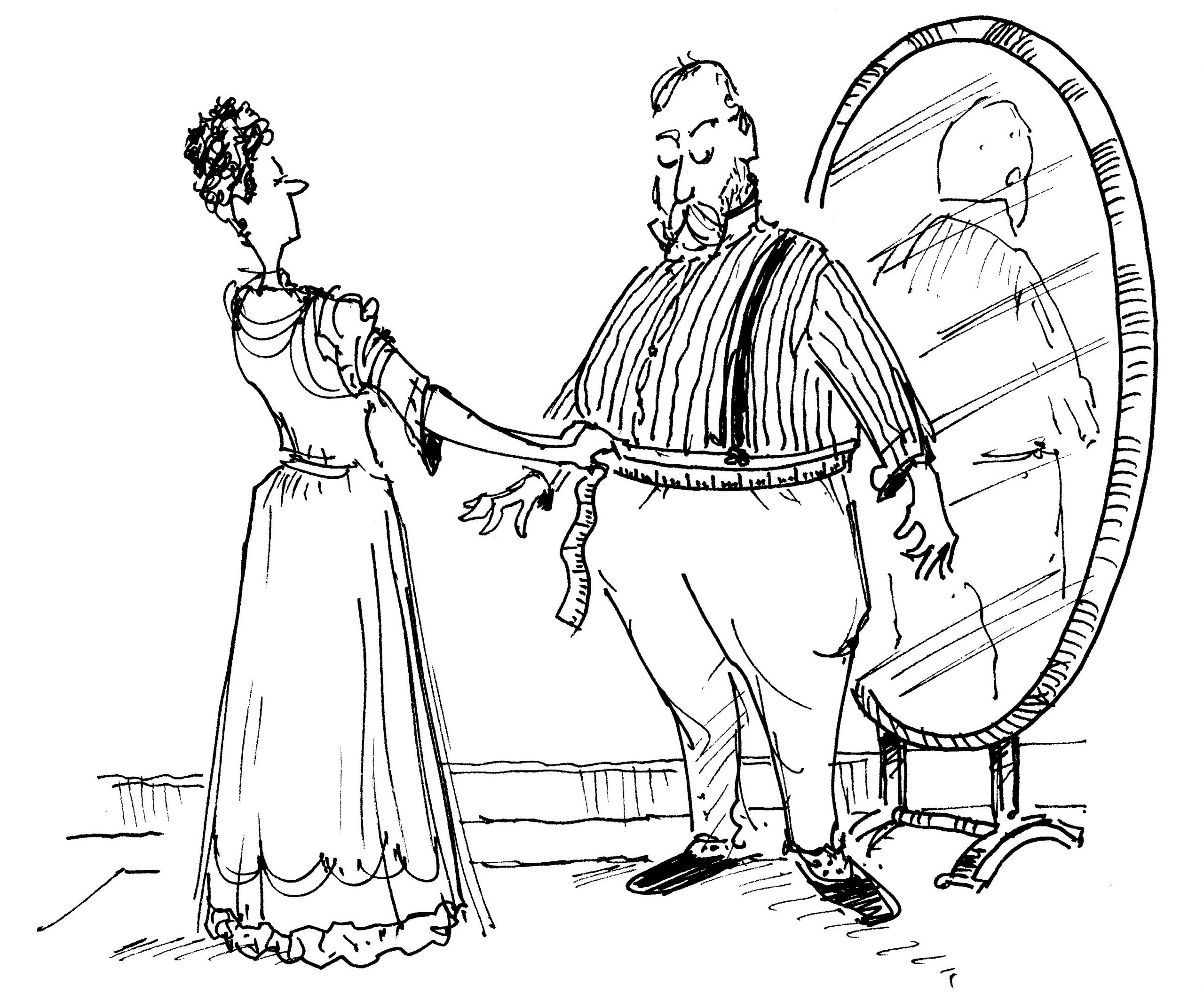
KING EDWARD: A LIFE OF PLEASURE
As the Prince of Wales, and later as King,
His mistresses (a veritable string)
Were received as part of the royal scene,
Which purists found a trifle obscene.
There was Hortense Schneider (one of the first);
Daisy ‘Babbling’ Brooke (surely the worst,
A right royal gossip); Lillie Langtry
(Graceful, voluptuous and willowy,
An aspiring actress); then, what a wheeze,
The Hon. Mrs. Keppel, his final ‘squeeze’.
The Queen was tolerant of Mrs. K,
Who had planned to call on the very day
The King died. She was due at five o’clock,
But the poor Queen suffered a cruel shock
When she saw her husband. As was her way,
She summoned Mrs. Keppel right away.
However sad she was, and woebegone,
Queen Alexandra had her head screwed on.
As the Prince of Wales, a life of pleasure
Was his happy lot. He took his leisure
(Women apart) at country house parties,
Shooting, yachting with nautical hearties,
And indulging his awesome appetite
At dinners and banquets, night after night.
His elegant wife got a fearful fright,
Happening to take her tape measure out
To measure his waist. She knew he was stout,
But forty-eight inches..! Without a doubt,
Old Queen Victoria was most put out:
Her son was all that her Albert was not.
With Bertie the country would go to pot.
Lord Salisbury was in broad agreement,
His first Prime Minister. No concealment
Did he make of his personal distaste
For Bertie’s habits. The Prince never graced
Hatfield House as an honoured private guest.
Lady S. in person, Heaven be blessed,
Supported her husband’s royal veto.
There were times one simply had to say no.
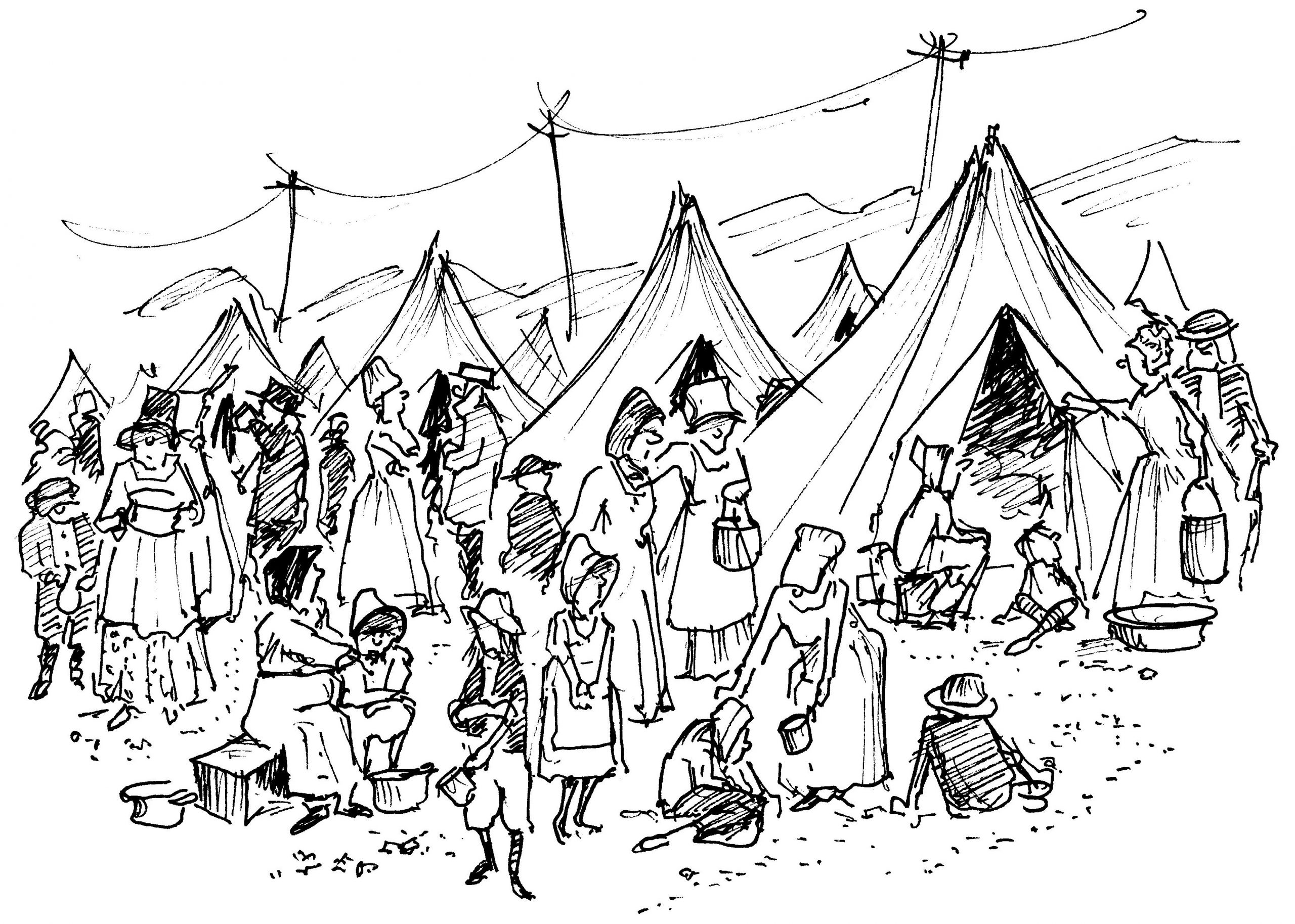
THE BOER WAR
The Boer War was as good as won,
Or so it was thought, by 1901.
The truculent Boers were sorely vexed.
The Transvaal had been formally annexed
By the Brits, also the Orange Free State.
Death to the Boers! Defeat was their fate!
Lord ‘Bobs’ Roberts, the Commander-in-Chief,
Returned home in triumph. It’s my belief
He was lucky, for the dispossessed Boer
Bit back with a vengeance. The costly war
Was not yet over. Roberts’ successor –
Apple of the late Queen’s eye, God bless her –
Was General Kitchener, Chief of Staff,
Promoted to Commander. Tough? Not half!
In the face of the guerrilla warfare
Waged by the Boers, you should be aware
That Horatio Kitchener played hard.
Government policy was ‘no holds barred’.
Prime Minister Salisbury maintained throughout,
“You will never conquer” (he had no doubt)
“These people until you have starved them out”.
The facts were stark. The guerrillas attacked
Railway lines; military camps were sacked,
Telegraphs destroyed. So the British burned
Their farms and homesteads. Lessons would be learned
If, but only if, the Boers concerned
Were pursued across the veld. The distress,
Imagine, of their families! Homeless,
The women and children, virtual tramps,
Were ‘concentrated’ into ‘rescue’ camps.
They were never captives. The irony
Is that their presence was voluntary.
But the refugees had nowhere to go,
And even the Boers, I’ll have you know,
Destroyed the homes of those who surrendered.
The hatred and bitterness engendered
By these foul places was beyond belief.
Tens of thousands of poor souls came to grief
In the concentration camps. Typhoid,
Hunger, dysentery (hard to avoid),
Claimed many lives. Some 20,000 died,
A terrible toll that can’t be denied.
Kitchener and his ilk must share the blame.
Campbell-Bannerman (remember that name),
Liberal leader, asked “when is a war
“Not a war?” People were wont to ignore
The truth. “When it is carried on,” he said,
“By methods of barbarism.” Instead,
Why not sue for peace? Whatever one’s views,
The Boers resembled “the widow’s cruse” –
So wrote Salisbury: “the more you kill,
“Or take, the more there are”. For good or ill,
The stubborn Boers refused to accept
Their pitiful plight. What did they expect?
The Brits to cave in? The time had to come
When the bold Boers would have to succumb.
To the British, too, it is my belief
That peace would come as a welcome relief.
6,000 soldiers died, if you please,
In the field, 10,000 more from disease,
With 23,000 poor men wounded –
And the cost? Two hundred million quid!
These were just the British figures. Who knows
How many Boers? We’re led to suppose
It was their sheer pig-headed resistance
To British rule, their blinkered insistence
On independence, that prolonged the war.
I am not prepared though to blame the Boer.
Back to top / Buy the book
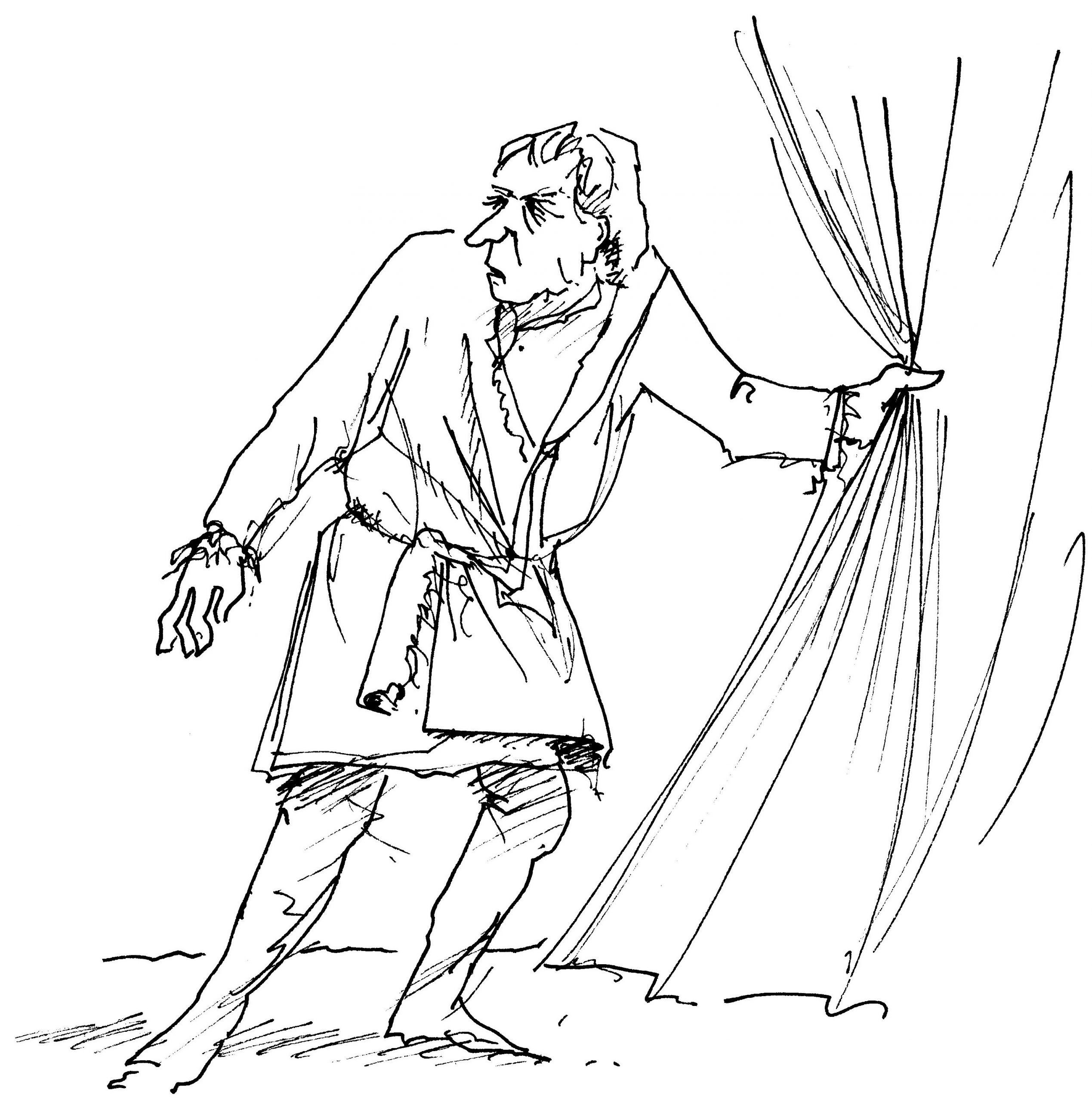
A THEATRICAL LEGEND
Sir Henry Irving took his final bow
In 1905. Now don’t ask me how,
But Irving triumphed theatrically,
Despite his awkward physicality,
His bad stammer, puny legs and flat voice.
The theatre seemed a curious choice
For such as him, but against all the odds
He made the grade. They fainted in the gods
During The Bells. The critics were struck dumb.
Sir Henry’s long reign at the Lyceum,
As actor-manager (twenty-three years),
Crowned this most surprising of careers.
He was knighted in 1895
By Queen Victoria. No man alive
Did more in his time to raise the profile
Of actors. Glamour was never his style.
In later life he went back to touring:
Becket, a dud by Tennyson, boring
And turgid, and The Bells, popular still.
Irving was ailing – nay, mortally ill;
A blaze had destroyed his scenery store;
He’d quit the Lyceum some years before.
The poor old soul couldn’t take any more.
Yet Irving staggered on, ever the pro.
He died in harness (what a way to go),
Following a barnstorming performance
As Becket. By chance, in the audience,
Was Athene Seyler*, then aged sixteen,
Who fainted clean away at his death scene.
He breathed his last in a Bradford hotel.
He was sixty-seven. Irving did well.
An elderly actor, it’s not much fun
Touring the provinces. His day was done.
Back to top / Buy the book

TOURING THEATRE COMPANIES
What of the provinces? Theatres thrived
In Edwardian times. Few have survived,
But (without counting buildings in London)
The total number, in 1901,
Was some two hundred and sixty or more –
Rich pickings for actors willing to tour.
Francis Robert Benson, aged twenty-four,
A novice in a touring company
Run on a shoestring by Walter Bentley,
Assumed the reins in 1883,
When Bentley ran off. Decidedly rash!
Raw, inexperienced and strapped for cash,
His life as a manager had begun.
Having renamed it the ‘F. R. Benson’,
Frank devoted himself, for forty years,
To touring. There were setbacks, there were tears,
But during this most bizarre of careers,
He produced every play of Shakespeare’s
At Stratford, barring only, it appears,
The rarely performed Titus Andronicus
And Troilus and Cressida. Why the fuss?
Well, Benson’s lifelong association
With Stratford enhanced his reputation,
But, more importantly, it became clear
That the public had a thirst for Shakespeare.
His productions were spare, scholarly,
Simple and plain – quite unlike those of Tree.
Benson took out more than one company
To play different parts of the country –
North, south and midlands simultaneously.
The old image of the ‘actor laddie’
Fitted his character down to a T.
Yet it remains a striking irony
That if it was the play you wished to see,
Without an excess of flim-flammery,
You’d head for the provinces. Poverty,
It appears, was no bar to quality.
During the Shakespeare tercentenary,
Benson was knighted. In the royal box
At Drury Lane, bless his cotton socks,
Sir Frank he became. Hardly a disgrace,
For this proved to be the very first case
Of an actor receiving his knighthood
In a theatre. Perhaps they all should.
Back to top / Buy the book
THE STRENGTH OF CAMPBELL-BANNERMAN
CB, as a House of Commons speaker,
Was dull and tedious, no one weaker.
Well, that was the broadly accepted view,
But his colleagues now witnessed something new –
A sharp, dynamic Campbell-Bannerman.
CB was suddenly the coming man.
Arthur Balfour had lost his Commons seat.
He was re-elected, back on his feet,
As Member for the City of London –
A hasty by-election: deal done.
Leading for the Tories, in a debate
On free trade, Arthur sought to obfuscate,
To blind the Commons with “airy graces”
(CB’s phrase), kicking over the traces
With a languid speech full of irony,
Paradox and anguished imagery –
More in the manner of Disraeli
Than a serious politician
Of the modern age. No contrition,
No humility, did Balfour display.
CB lost his temper. High time, I say.
“Enough of this tomfoolery,” he cried.
The force of his put-down can’t be denied.
This “light and frivolous way of dealing
“With great questions” was unappealing.
These tactics “might have answered very well
“In the last Parliament” (you can tell
How cross he was) – they were “altogether
“Out of place in this!” Light as a feather,
He hit his mark. A change in the weather?
I’ll say! Far from having barely survived,
A new Campbell-Bannerman had arrived.
Even the old King began to mellow.
CB, if you please, was “a good fellow”,
Edward having run into him, by chance,
At Marienbad. His ‘pro-Boer’ stance
Was largely forgotten, apparently,
As the King (who’d expected him to be,
By his own account, “prosy and heavy”)
Found him to be “very good company”.
They rarely talked politics, however.
One reporter, trying to be clever,
Who saw the two with their heads together,
Printed the headline, “Is it peace or war?”
When asked, CB had a surprise in store.
The King had only been asking his view
“Whether halibut” (I swear this is true)
Was “better baked or boiled”. A pleasant chat
Between two old gents, as simple as that.
Back to top / Buy the book
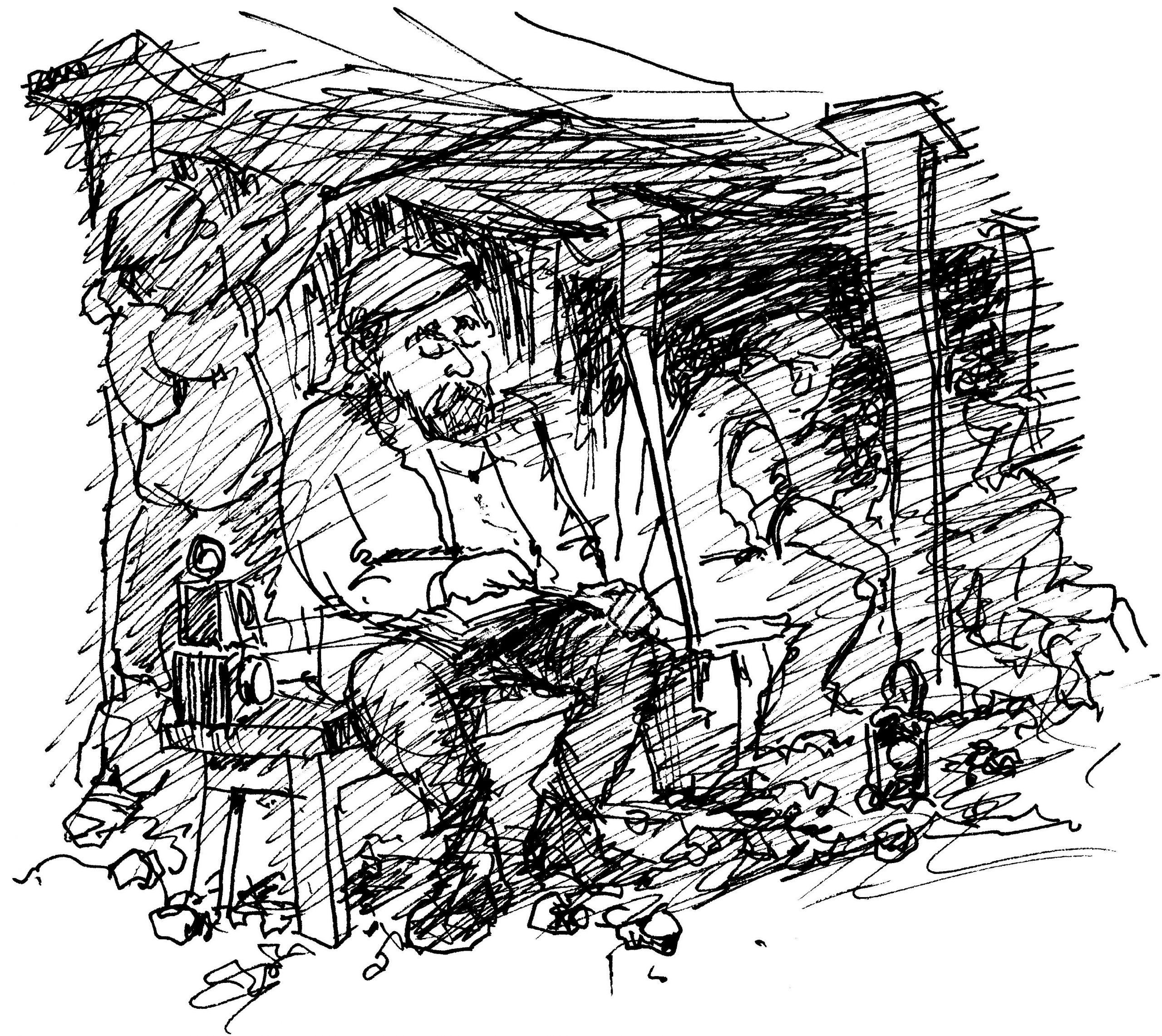
KEIR HARDIE
The first leader of the Labour Party
Was the indomitable Keir Hardie.
In the 1906 Parliament,
The fledgling party, by common consent,
Achieved a breakthrough: twenty-nine MPs.
This was up from a mere two, if you please,
In 1900, when Keir Hardie
(Merthyr Tydfil) and Richard Bell (Derby)
Were both elected. Hardie’s first success
Had been in 1892, no less,
As the Independent Labour MP
For West Ham South. Returned for Battersea
Was J. W. Burns. They lost their seats
In the worst of electoral defeats
In 1895. Labour: zero!
But Hardie was the party’s first hero.
A working miner, he was widely read.
He taught himself Pitman’s shorthand, it’s said,
Down the mine. Before he was twenty-five
He left the pit, and managed to survive
As a shopkeeper, then a journalist,
And later as a trade unionist.
He became the full-time secretary
Of the Ayrshire miners. The young Hardie
Was in his element. Unionism
Led him to embrace socialism.
Keir deplored the bloody suppression
Of striking miners and the aggression,
Which he witnessed, of the police. Appalled,
He nailed his colours to the mast and called,
Openly, for the peaceful overthrow
Of capitalism. Who was to know
That Keir Hardie, by 1906,
Would have changed the face of British politics?
Hardie’s Independent Labour Party
(ILP) and the so-called LRC
(Labour Representation Committee)
Came together as the Labour Party
In 1906. This new unity
Fostered a greater strength in the movement
And led to a progressive improvement
In campaigning power and influence.
The forging of a ‘labour alliance’
Between the party and the TUC
Was an overwhelming necessity,
But this occurred only gradually.
However, after the Taff Vale judgement,
It was clear that only Parliament
Could remedy the patent injustice.
It was the growing awareness of this
That brought the bigger unions on side.
A political base? Time to decide!
Keir Hardie did not go unheeded:
A strong voice in the Commons was needed.
Back to top / Buy the book

MOTORING
The motor car was the toy of the rich.
Watch out, or you could end up in the ditch
As a Daimler or Mercedes sped by.
No more red flags, that was the reason why.
For before to the turn of the century,
A fellow with a red flag, for safety,
Had to walk in front of a motor car.
Needless to say, it could not travel far
(Let alone fast). The British, to be blunt,
Were slow off the mark. Leading from the front
Were Germans: Gottfried Daimler and Karl Benz.
I have no desire to give offence,
But engineers like Morris and Austin,
For all their skills, barely got a look-in
During those first, experimental years.
And yet these two dynamic pioneers
Grew in strength to become the true giants
Of Britain’s car industry. Their clients
Belonged to the lower and middle band
Of the market. Their cars were hardly grand,
But they were cheap! The company of choice,
Of course, for the upper class, was Rolls-Royce.
Royce was an electrical engineer.
He was cool and reserved, it would appear,
With the Hon. Charles Rolls on first acquaintance.
Both men, to be frank, were high maintenance.
Rolls was a high-class salesman. Truth to tell,
His was the most exclusive clientele,
And when a Rolls-Royce won the Manx Grand Prix,
In 1906, I’ll tell you for free
That their name was made. “Not one of the Best – ”
Was their early slogan: folk were impressed –
But “The Best in the World.” And so it proved.
Rolls-Royce led the way, and the world approved.
Back to top / Buy the book
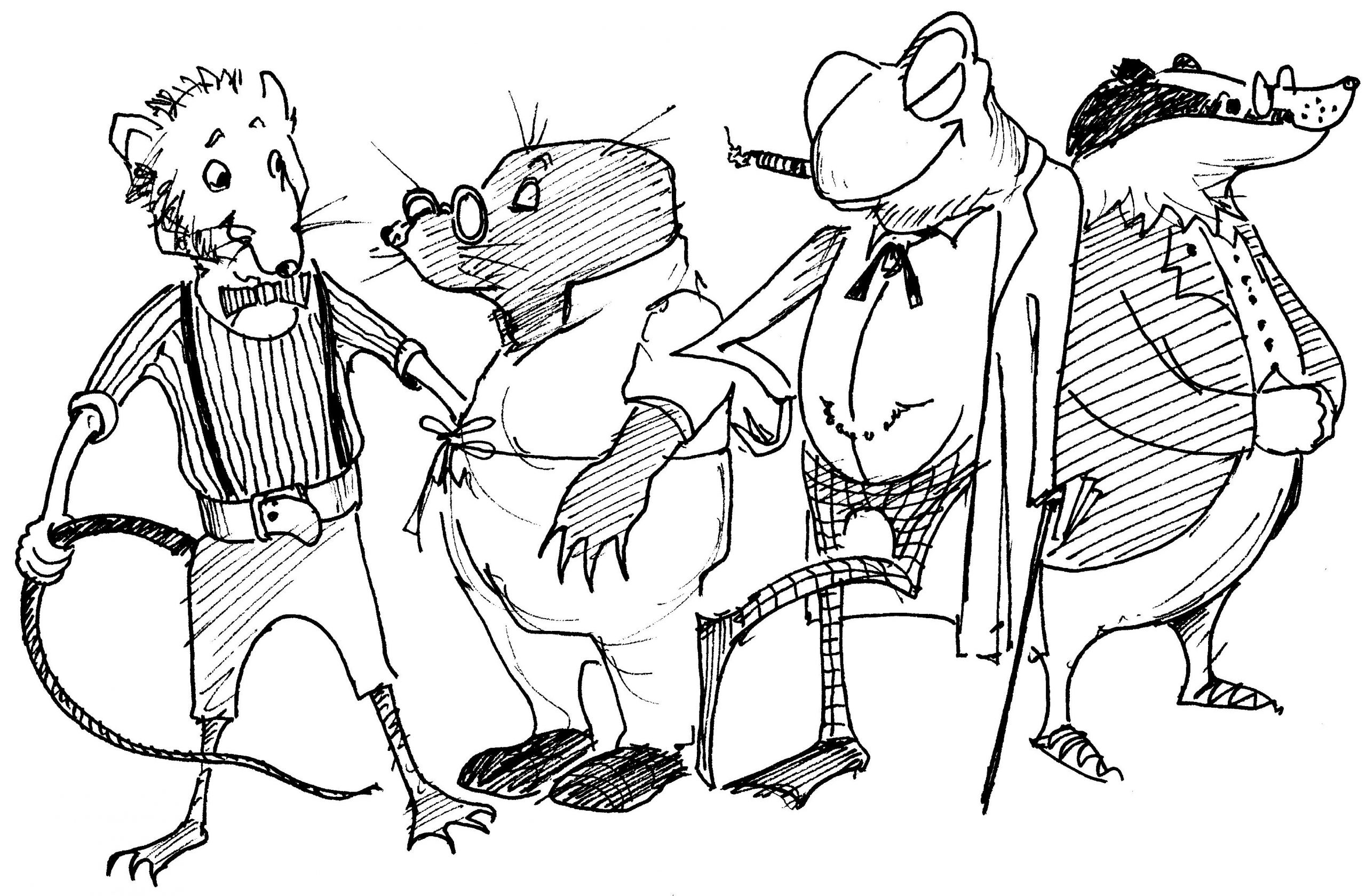
KENNETH GRAHAME
Now in my view the novel of the age,
A feast of wonders on every page,
Is The Wind in the Willows. Ever billed
As a children’s story, you will be thrilled,
I promise you, when you pick up this book
As an adult. Do take a second look.
For this charming tale of the river bank,
A gem, we have Kenneth Grahame to thank.
The entirety of his working life
He spent at the Bank of England. His wife
Always claimed that The Wind in the Willows
Was for their son – propped up on his pillows,
In bed, an invalid child. True or not,
This “messing about in boats” (what a plot!),
The tale of Ratty, Mole, Badger and Toad –
The latter ‘a-toot’ on the open road –
Was a hit when Methuen published it.
All other publishers had rubbished it.
Methuen decided to take a chance,
But refused point blank to pay an advance –
Too risky. Three little furry creatures
And a toad! Well! The novel’s finest features
Are its dialogue (witty, down to earth
And human) and, of still more sterling worth,
Its descriptions: never overdone –
Nay, pitch perfect. The rising of the sun,
The peace of the river, the dawn chorus,
The reeds and poplars: the prose is gorgeous,
But never pretentious. It was this
That the critics loved, but (easy to miss),
In Grahame’s words, “they did not even notice
“The source of all the agony, all the joy”
That went into “those playful pages”. Oh, boy!
That says it all and perhaps explains why
The Wind in the Willows will never die.
Perfection in a book is a rarity.
Kenneth Grahame achieved it, believe you me.
Back to top / Buy the book
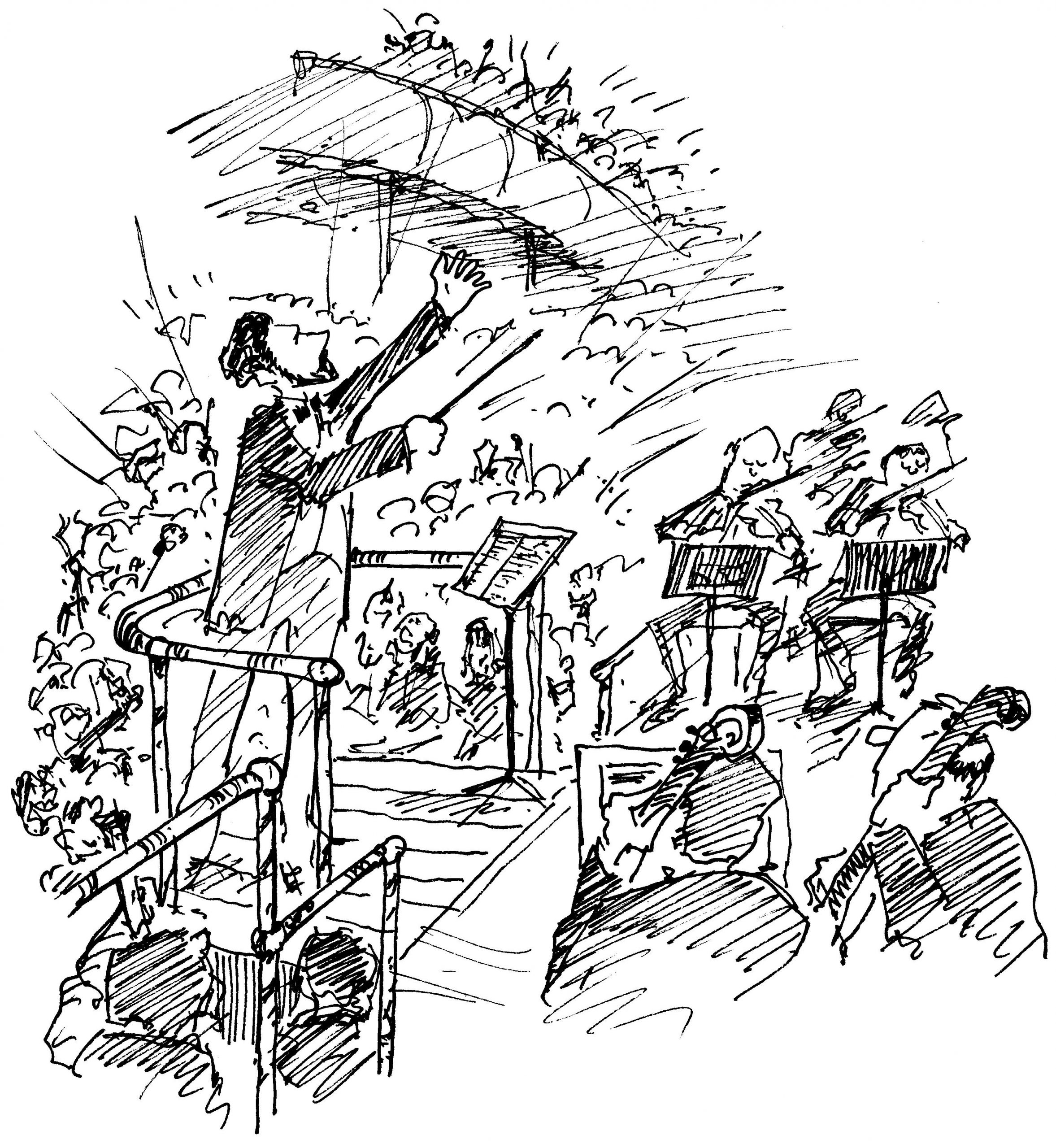
EDWARD ELGAR
Parry set the bar high. Edward Elgar,
In his day, was an even brighter star.
Sir Hubert’s junior by just nine years,
Elgar was more than a match for his peers.
He was a late starter, pushing forty
When, for the Queen’s Diamond Jubilee,
In 1897, he composed
His Imperial March. No one supposed,
At the time, that Elgar would reach the heights.
But fame was the spur. Edward set his sights
On greatness. He had led a humble life,
Tied to his father’s music shop. His wife
Encouraged him in his ambition.
He was self-taught in composition,
Studying Beethoven, Haydn, Mozart…
Harmony, counterpoint… Where do I start?
He played organ, bassoon and violin,
But knew, in his soul, he cared not a pin
For performance. So he began to write.
He would compose a new piece, overnight,
For his and his brother Frank’s wind quintet:
Oboe, bassoon, two flutes and clarinet –
Every week, a completely new set.
Edward struggled, and would have come to grief
Had it not been for honest self-belief
And the support of his dear wife, Alice.
By all means give his early works a miss,
But in 1899 he struck gold.
Who among his critics could have foretold
That his Enigma Variations,
One of Elgar’s rarest creations,
Would become one of the sensations
Of the age? Not his wife’s relations,
That’s for sure. They opposed the marriage
And did their level best to disparage
Young Edward’s talents. His true genius
Shone through in The Dream of Gerontius,
Which was first performed the following year.
Early notices were lukewarm, I fear.
The work was under-rehearsed. Nonetheless,
Gerontius became a huge success,
The finest oratorio, no less,
In English, since George Handel’s Messiah.
Edward Elgar, it seems, was on fire.
His first Pomp and Circumstance March (in D)
Had the Queen’s Hall, London, in ecstasy.
It’s true! The conductor, Sir Henry Wood,
Was keen to move on, if only he could,
But the audience insisted on more.
So Sir Henry gave them a full encore.
This, apparently, was still not enough!
Pomp and Circumstance was very strong stuff.
Elgar was well and truly on the road
To fortune. His Coronation Ode
(1902), at the suggestion
Of the King, used the trio section
From Pomp and Circumstance. A. C. Benson
Wrote the words. Thus Land of Hope and Glory
Was conceived, and the rest is history.
This was published as a separate song
And is sung, today, to jolly along
The Last Night of the Proms. Encore! Encore!
Elgar was knighted in 1904.
There were more gems: the Cockaigne Overture,
Concerto for Violin and Orchestra,
Symphony No. 1 (in A flat major) –
Also Sea Pictures (to give you a flavour),
A superb song-cycle. Dame Janet Baker,
At her brilliant best, made these songs her own,
With her rich, mellifluous contralto tone.
Sir Edward’s modesty was impressive:
“I ask for no reward, only to live
“And hear my music.” It’s not recorded,
But I hope that he was well rewarded.
Back to top / Buy the book
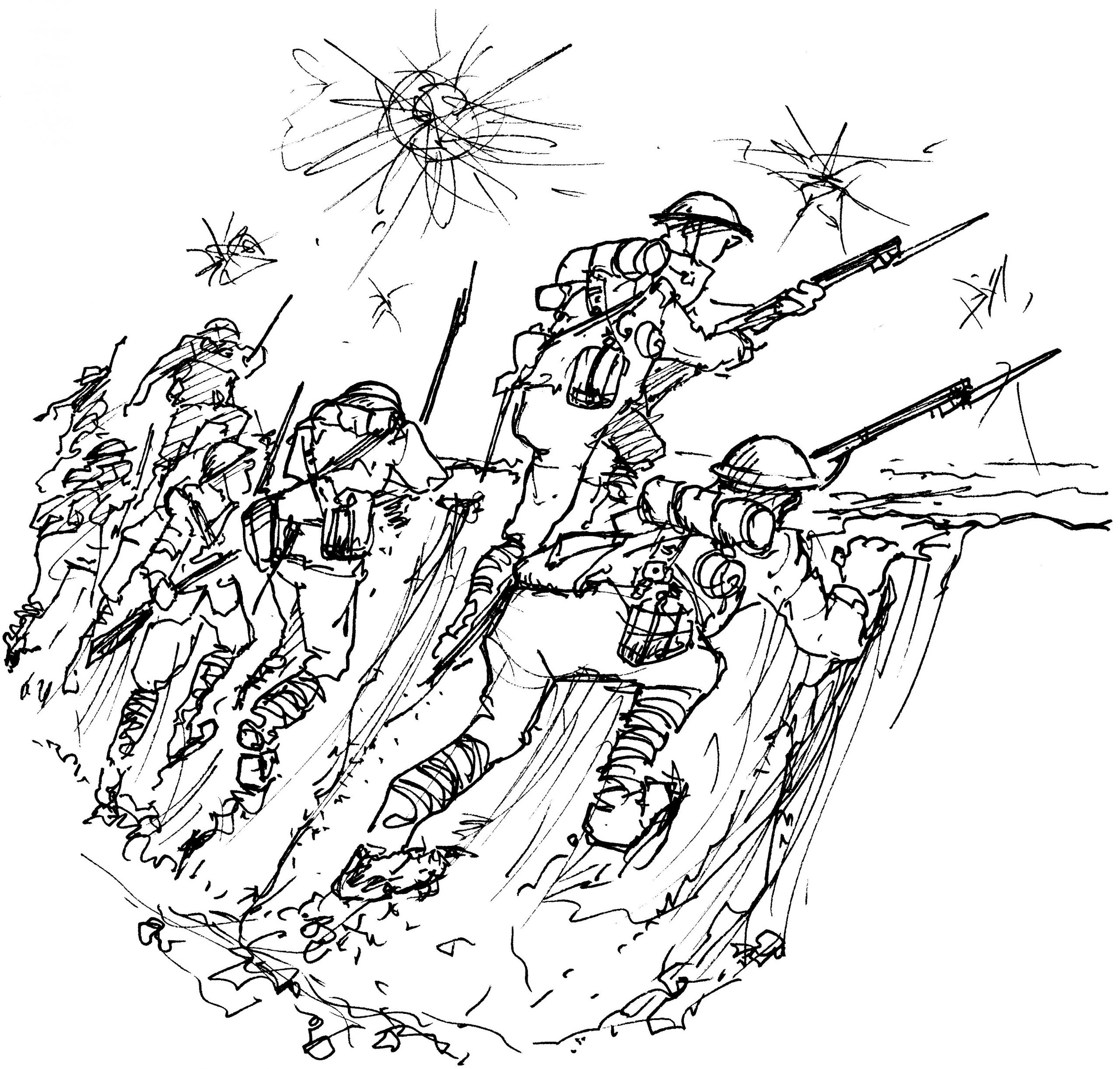
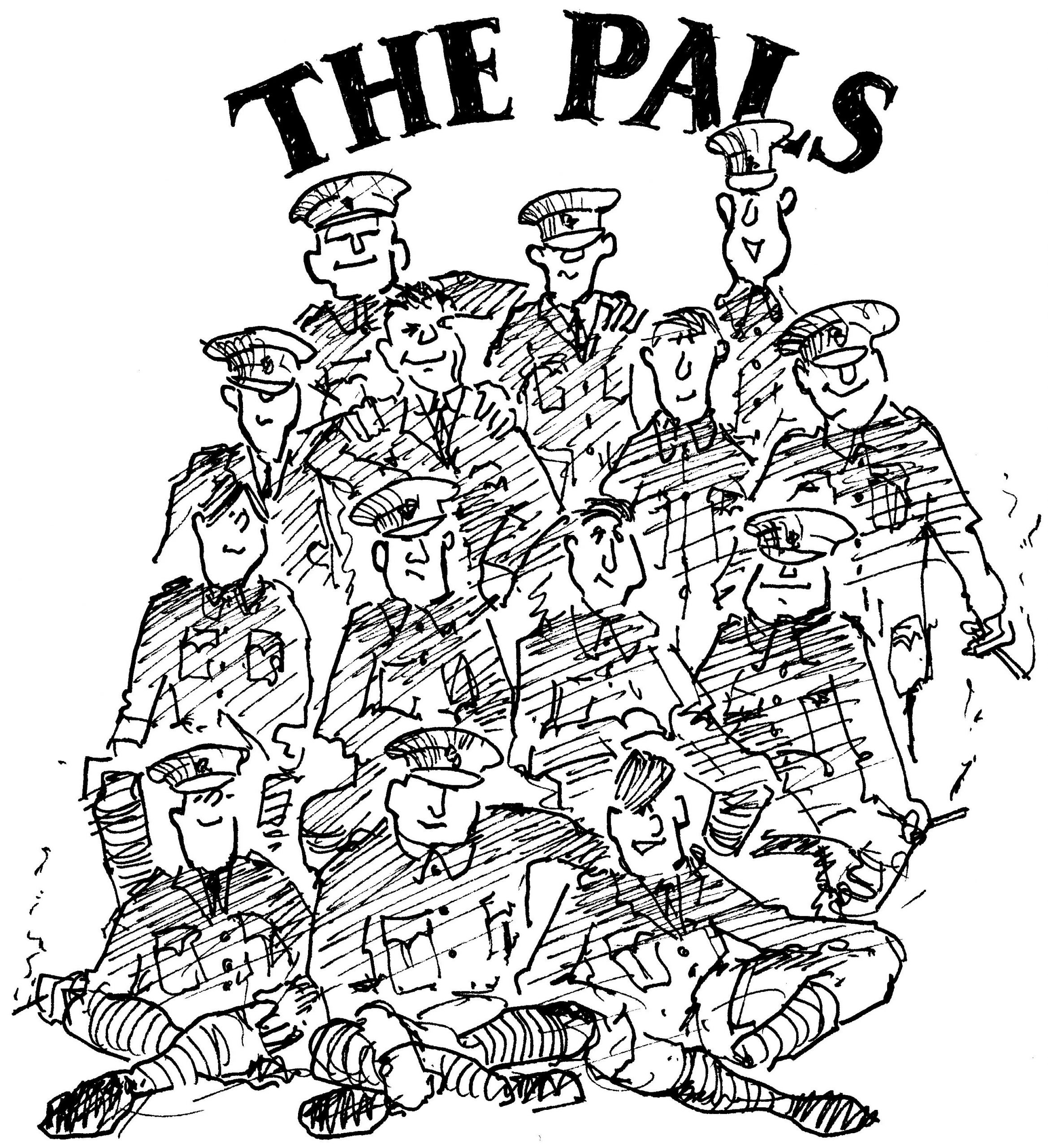
THE BATTLE OF THE SOMME
“The two bloodiest battles ever fought
“On earth.” So Lloyd George described the onslaught
On the Somme, and the ruinous defence
Of Verdun, in his Memoirs. No pretence
Did he make of the cost, which was immense.
Over 300,000 of the best,
The bravest, as both sides rose to the test,
Died on the Somme. The huge losses sustained,
For no significant advantage gained,
“Were not only heavy,” reports explained,*
“But irreplaceable”. The allies,
Badly wrong-footed, were cut down to size
By the enemy assault on Verdun.
The great Somme offensive should have begun
In the spring. With the Germans on the run,
The allies could have broken through. Job done.
It was not to be. The French commitment
To Verdun’s defence meant, in the event,
That the British had to extend their share
Of the line. Haig, all too well aware
Of the risks, sought to delay the attack.
Joffre was insistent. To put it back,
As Haig would have liked, was not (repeat, not)
In the allied interest. A grim lot,
The French. Who cared how many British died?
Haig, out of a sense of mistaken pride,
And egged on by the British High Command
(Viz. Kitchener), succumbed to the demand.
So it was that on the 1st of July
The Brits went over the top. Why, oh why,
One wonders, did so many have to die?
With no major strategic objective,
The attack was doomed. It’s hard to forgive.
The great offensive would prove decisive,
So the troops were told. This, of course, was lies.
These volunteers were in for a surprise –
‘Kitchener’s Army’, so-called. Remember
The recruits, from August to December,
1914, who had signed up to serve,
Patriots all? It took a mighty nerve
To subject these untested young heroes
To such a bloodbath as the Somme. Who knows
What would have happened had we just stayed put,
Instead of inching forward, foot by foot,
To win, at very most, ten miles of ground
Over four long months. The numbers astound:
Over 600,000 missing, dead
Or wounded from the allies, with (I’ve read)
Some half a million Germans to boot.
Yet your average British raw recruit
Was assured it would be a piece of cake.
The Battle of the Somme was make or break,
And the trusty Tommy, for pity’s sake,
Would rise to the challenge and win the war.
A crack at the Boche! Well worth waiting for!
Heavy bombardment was the British ploy,
Over five long days, designed to destroy
The German line. It managed to annoy,
To harass (little more), the enemy
In their trenches. The Germans, patently,
Got the message, only too well aware
Of an imminent attack! I despair.
The British guns, moreover, were unfit
To do the job. Only a direct hit
Would cause any real damage, alas,
To the barbed wire, that murderous mass
Of ghastly, twisted metal – a death trap
For poor Tommy Atkins, wretched young chap.
On the morning of the 1st of July,
“Over the top!” was the rallying cry –
To do or die. The Germans were ready:
Their guns were prepared; their nerve was steady;
They had little to do but watch and wait.
The infantrymen stepped up to the plate.
When the call came they didn’t hesitate.
For reasons I find hard to understand,
They were expected to cross No Man’s Land
Weighed down with equipment (sixty-six pounds,
Supplies and shovels, the folly astounds:
That’s the weight of two heavy suitcases).
To cross a battlefield, of all places,
With such a handicap, was plain barmy.
Madness. What a way to treat an army.
Haig was sure of an easy victory,
So confident, and complacent, was he
That bombardment by the artillery
Would deal a death blow to the enemy.
All the soldiers would then have to do,
In his smug, over-optimistic view,
Was fortify the line. Crazy, but true.
“The wire has never been so well cut,”
Haig insisted. Sadly, anything but.
The men were not equipped for an assault,
And this was largely the General’s fault –
A hideous, monumental blunder.
Would things have been different, I wonder,
Had Sir Douglas, for his pains, been aware
Of the facts? I doubt it, and I despair.
Be that as it may. For ‘devil-may-care’
Was the mood of the day. Over they went:
Men with rifles, bayonets, equipment,
Field telephones, shovels and picks… God knows
How any survived at all, poor fellows.
Platoons of soldiers advanced in waves.
There are tens of thousands of unmarked graves
In No Man’s Land. Forward the front line surged,
As the German machine gunners emerged
And blasted the wretches to smithereens.
The Somme was the most murderous of scenes
In British military history.
It remains something of a mystery
Why commentators leap to the defence
Of Haig. The Somme offensive made no sense.
The soldiers had been trained to advance
In straight lines. Poor souls, they hadn’t a chance.
German machine guns fired at a rate
Of six hundred rounds a minute. Some fate.
The communication lines, I fear,
Were poor between the command, in the rear,
And the officers at the Front. The plan,
From the moment the first assault began,
Was to throw in men, on a massive scale,
In successive waves. It was sure to fail.
News of the slaughter did not trickle through,
Strange as this might seem, to Army HQ
Until early afternoon. Some delay!
Casualty figures on this first day
Were the worst for any day of the war:
Some 20,000 killed (probably more),
And 40,000 wounded – over half
Those who fought. Satan was having a laugh
On the Somme that day, no shadow of doubt.
Men from whole communities were wiped out
In half an hour. Recruits from one town,
Accrington, in Lancashire, were cut down
In droves: five hundred and eighty-four killed,
Wounded or missing, precious blood spilled,
All for nothing. There’s a most moving play,
A testament to the grief and dismay
Suffered by the town that terrible day,
When news of the great catastrophe broke.
A tale of strong, plain, ordinary folk,
The Accrington Pals takes us to the heart
Of this sad story from the very start.
Peter Whelan, a natural playwright,
Pitches the tragedy exactly right.
British newspapers could not have cared less
For the truth. “A good day,” boasted the press,
“For England!” The push was “sparing in lives”.
Can you believe it? The record survives.
Back to top / Buy the book

